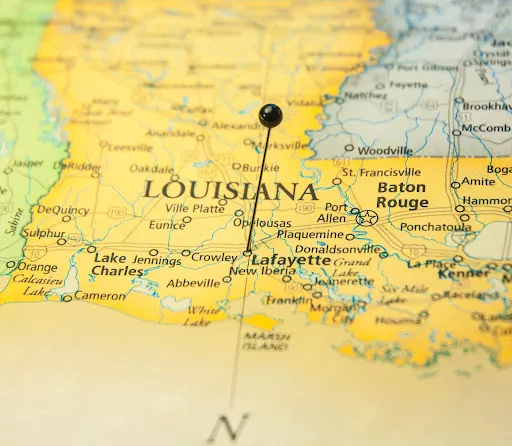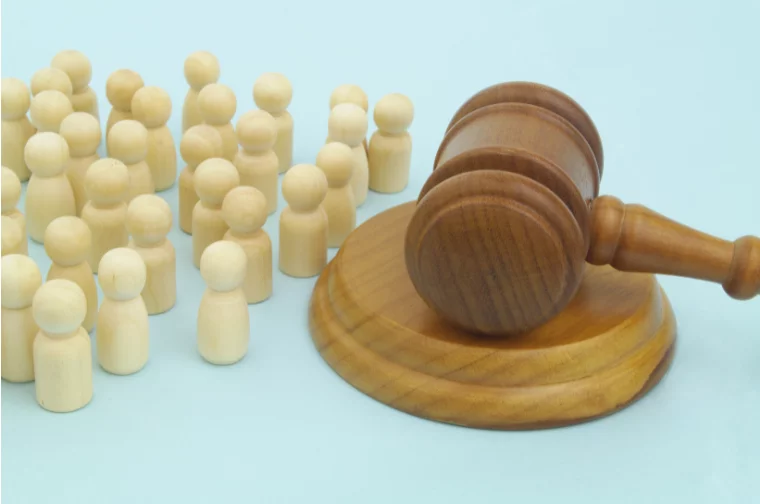How is Louisiana Law Different from Other States?

There are a lot of things Louisiana is known for: its delicious food, the party atmosphere, its French influence, and oddly enough, its legal system. While every other state uses Common Law, derived from English law, Louisiana uses French Civil Law, which is derived from the Napoleonic Code.
Legal theory and the role of legal precedent
The biggest difference between Louisiana civil law and common law in the other 49 states is in how the law is codified, interpreted, and put into practice. Specifically, these systems have distinct ways of interpreting legal precedent, or the results of previous court cases about the same legal questions.
Common law relies heavily on precedent, which is also known as case law. Statutes under common law are not comprehensively codified in the text; instead, judicial decisions rely on the interpretation of the law as previously ruled by earlier judges. Judges in your case will have the discretion to determine what case law is relevant in your situation, and apply it accordingly.

In contrast, civil law in Louisiana relies on a judge’s own interpretation of the codified statutes on the books. While precedent can guide a judge’s decision in the current case, they are given more discretion to interpret the law itself. This practice generally results in more specific laws, though different judicial interpretations can lead to different applications of the same law in similar cases, regardless of precedent.
Different terms, same concepts
Louisiana law also uses different terminology than the law of other states. What’s commonly known as a statute of limitations elsewhere in the country is known as liberative prescription in Louisiana. Here are some other examples of different terminology you might hear in your Louisiana personal injury case, and their equivalents in common parlance:
| Civil law legal principle | Common-law “translation” |
|---|---|
| Civil possession | Similar to constructive possession, civil possession is the concept that possession of a thing is retained by the intent to possess it, even if the owner ceases to physically have it in their possession. |
| Delicts, Damages ex delicto, Delictual | Torts, also known as personal injury |
| Duty-risk analysis | The test in Louisiana civil lawsuits to determine whether there is negligence. Duty-risk analysis collapses common law’s duty and proximate cause tests into one question: “Does this defendant owe a duty to protect this plaintiff from this risk which occurred in this manner?” |
| Immovables | Realty or real property |
| Movables | Personalty or personal property |
| Pacte de preference | Right of first refusal |
| Partnership in commendam | Limited partnership |
| Pledge | Collateral |
| Reconventional demand | Counterclaim |
These translations have been sourced from A Civil Law to Common Law Dictionary, by N. Stephan Kinsella, which contains many more besides.
What does this mean for my personal injury case?
You might be worried that this means your Louisiana personal injury case will be more complex, but don’t worry. In fact, Louisiana law is currently more of a hybrid system that’s based on civil law, with influences from common law. According to the Louisiana Law Library, Louisiana’s legal system does comply with the U.S. Federal Rules of Civil Procedure.
Even though differences do exist, when it comes to personal injury law, Louisiana and the rest of the country often handle cases similarly. Louisiana judges can and do rely on case law, even if they ultimately make their decisions based on the codified law. Similarly, common law judges aren’t totally bound by precedent, since times do change and judges are fallible people too.

The bottom line is, any state’s legal system is complicated. If you’ve been injured due to someone else’s negligence, you need an experienced personal injury attorney on your side to maximize your compensation and fully heal. The lawyers with Gordon McKernan Injury Attorneys have over 679+ years of combined legal experience helping victims in Louisiana, and we can help you hold the parties responsible for your injuries to account.

